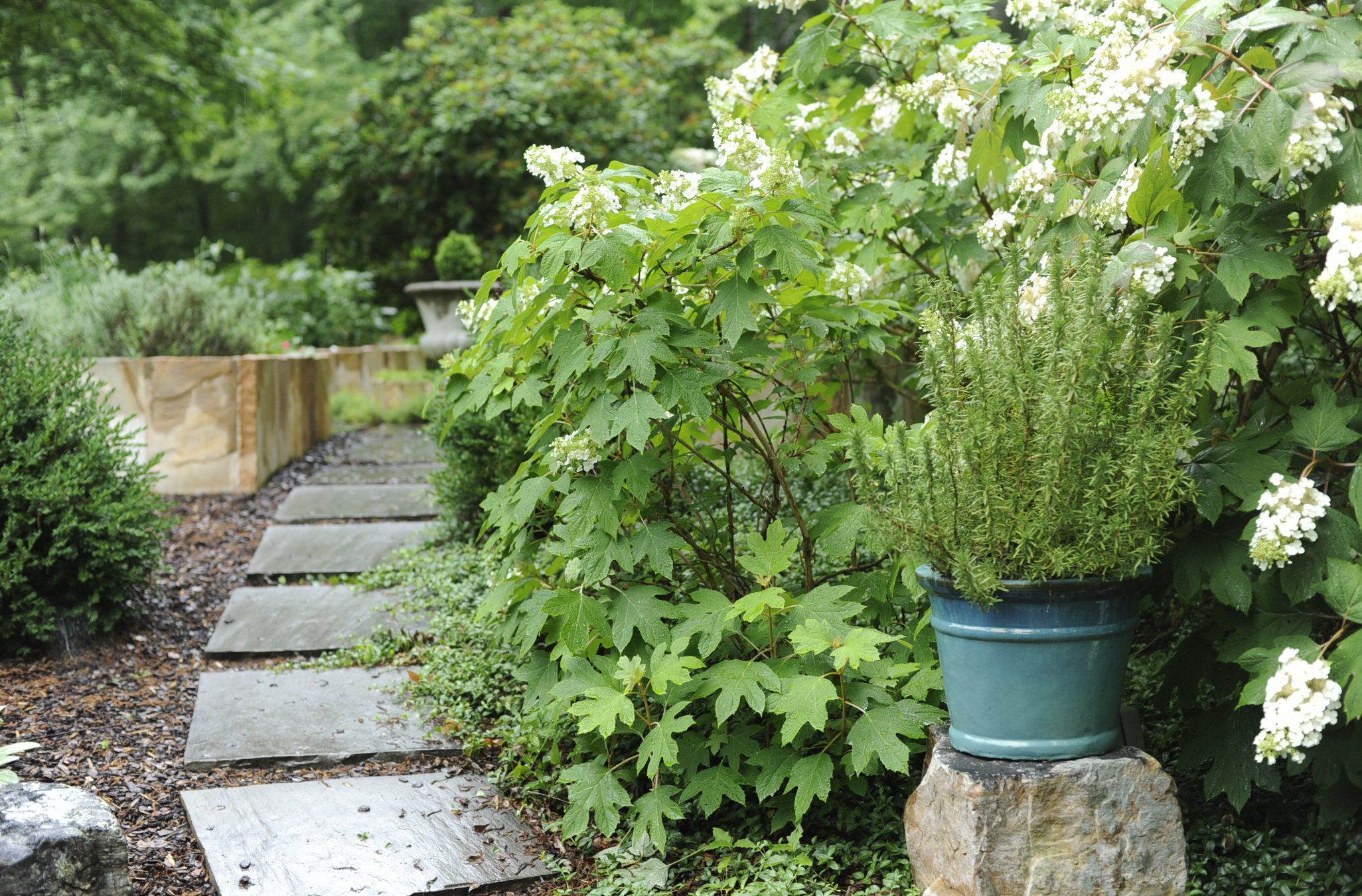IF YOU GOWhat: Chattanooga Area Food Bank's 25th annual Garden Tour.When: 10 a.m.-6 p.m. June 2,1-6 p.m. June 3.Where: Kin and Suzanne Smith, 549 Bluebird Circle; Jim Keown, 8633 Pershing Road; Dona Smith, 3040 Laurel Cove Lane, Signal Mountain; Food Bank's Evelyn Davenport Navarre Teaching Garden, 2009 Curtain Pole Road; Jane Elmore, 901 Oak Street; Montessori School Sensory Garden, 301 Montessori Way.Admission: $15; free for children under 12.Contact: 622-1800 or www.ChattFoodBank.org.CALENDARS AVAILABLETo celebrate the Spring Garden Tour's 25th anniversary, calendars will be available highlighting gardens that have been featured on the tour over the last quarter-century. Made possible by Holcomb Garden Centers, the calendar is available as a gift to supporters who donate $20 or more to the garden program. Calendars will be available on the June 2-3 tour, by calling the food bank at 622-1800.
Most people may think of the Chattanooga Area Food Bank when they donate groceries to fill its shelves. But one of the programs it promotes is for area residents to grow their own vegetables.
The organization is dedicated to educating area residents on how to become productive gardeners, said Jane Mauldin, garden coordinator. To increase that interest, the food bank will present its 25th anniversary Spring Garden Tour next weekend.
The six public and private gardens on the tour include the food bank's Evelyn Davenport Navarre Teaching Garden, where 23 raised beds produce food each summer.
"We [grow] fresh produce that is then added to the food bank's emergency food boxes," said Jane Mauldin, garden coordinator. "We raised over 2,000 pounds of fresh produce in 2011."
Members of the food bank's teaching garden program are hosting the tour, said development director Holly Ashley. Funds raised will support the program, which Mauldin oversees.
"I work closely with Hamilton County Master Gardeners, who teach classes on all aspects of gardening, such as seed starting, composting, edible landscaping, attracting butterflies and pollinators, and making rain barrels," Maldin said. "We also offer classes in food prep and preserving."
Mauldin, who has been with the food bank for 12 years, said the teaching garden program began in 2010 outside the food bank warehouse off Amnicola Highway. It was a continuation of the Bill Johnson Community Garden, which was established in the mid-1980s in honor of the food bank's first director and serves low-income residents in the Gateway community on the Westside.
According to Mauldin, the teaching garden and an adjacent open-air pavilion have been a source of inspiration for many community gardens.
"One goal in building the facility was to demonstrate how to grow food in an urban environment," she said. "We have schools, churches and civic organizations come out on a regular basis to tour and get advice on starting their own gardens and teaching spaces."
And because it's sited along the Tennessee Riverwalk, "we have lots of visitors even when we are not there working," Mauldin said.
Because it's a teaching garden, it is set up to offer a hands-on, educational approach, she said. It demonstrates best practices, what can be grown and when, and methods of sustainability.
"We try to be good stewards, so we have a cistern to collect rainwater to irrigate the beds," Mauldin said. "We have a porous sidewalk that rainwater can go through. We also have a rain garden in the drainage ditch between the food bank's large parking lot and the garden. Rain gardens reduce the amount of polluted rainwater getting into our streams and rivers by up to 30 percent."
Mauldin said the garden shows people the connection between other kinds of gardening and growing food.
"If you can grow flowers and shrubs, you can cerainly grow food, and it is just as rewarding and exciting, if not more," she said.
MORE ABOUT AREA FOOD BANK
• Founded in 1982 by area civic leaders.
• Began with 52-member agencies that operated out of a warehouse space donated by The Chattanooga Times.
• In its first year, the food bank distributed 600,000 pounds of food; in 2011, 11.9 million pounds.
• The food bank provides food to more than 20,000 people in our area each week.
• The food bank's garden program includes educational workshops throughout the year on vegetable gardening, best gardening practices, conservation, cooking and preserving classes.
Source: Chattanooga Area Food Bank
